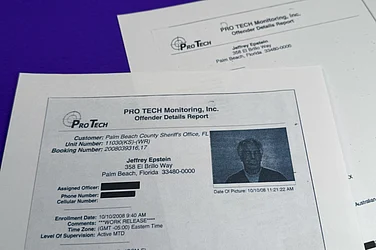Top American senators have urged President Joe Biden to encourage India to accelerate its transition away from Russian weapons.
As much as 70 per cent of Indian military equipment is of Russian- or Soviet-origin, including military aircraft and tanks. India's imports of Russian weaponry and dependence on the Russian miltiary industry is a major concern for the United States, which has only risen since the invasion of Ukraine. The United States and the West are also concerned about Indian purchase of Russian oil.
Senator Mark Warner, Co-Chair of the Senate India Caucus, along with Senators Jack reed and Jim Inhofe, also noted the significance of the India-US partnership in the Indo-Pacific region, rooted in common interests and shared democratic values. The three senators —members of the Senate, upper house of American parliament— made these comments while propsing an amendment to the National Defense Authorization Act.
They said a strong US-India defence partnership rooted in shared democratic values is critical to advancing Washington’s interests in the strategic Indo-Pacific region. They said that India faces immediate and serious regional border threats from China, with continued military aggression by the Chinese people along the India-China border.
"The United States should take additional steps to encourage India to accelerate its transition away from weapons and defence systems manufactured in the Russian Federation while strongly supporting India's immediate defense needs," said the amendment, adding that for its national defence, India relies on weapons manufactured by Russia.
Think tank Institut Montaigne reports, "About 90 per cent of the Indian Army's equipment comes from Russia. The Indian Navy's share of Russian equipment is, in contrast to the Army, estimated at only 40 per cent. Around 70 per cent of the equipment of the India Air Force (IAF) are of Russian origin."
These high figures are despite the continuous decline in military imports from Russia and diversification of Indian military equipment. Between 2016-20, there was a 53 per cent decline in military imports from Russia, noted US Congressional Research Service.
Russia has been a major supplier of military hardware to India. In October 2018, India signed a $5 billion deal with Russia to buy five units of the S-400 air defence missile systems, notwithstanding a warning by the United States that going ahead with the contract may invite sanctions under the provisions of Countering America's Adversaries Through Sanctions Act (CAATSA).
Russia started delivery of the first regiment of the missile systems in December last year and it has been deployed to cover parts of the border with China in the northern sector as well as the frontier with Pakistan.
“A strong United States-India defence partnership rooted in shared democratic values is critical to advancing United States interests in the Indo-Pacific region," said the amendment.
It said the such partnership between the world's oldest and largest democracies is critical and should continue to be strengthened in response to increasing threats in the Indo-Pacific region so as to send an unequivocal signal that sovereignty and international law must be respected.
China, which has territorial disputes with many countries in the strategic Indo-Pacific region, has been opposing the US proactive policy specifically in the disputed South China Sea.
China claims nearly all of the disputed South China Sea, though Taiwan, the Philippines, Brunei, Malaysia and Vietnam all claim parts of it. Beijing has built artificial islands and military installations in the South China Sea. Beijing is also involved in a maritime dispute with Japan over the East China Sea.
The amendment welcomes the US-India Initiative on Critical and Emerging Technologies and says that it is an essential step to developing closer partnerships between the governments, academia, and industry in the two countries for the purpose of addressing the latest advances in artificial intelligence, quantum computing, biotechnology, aerospace, and semiconductor manufacturing.
"Collaborations between engineers and computer scientists through the United States-India Initiative on Critical and Emerging Technologies are vital to help ensure that the United States, India, and other democracies around the world foster innovation and facilitate technological advances that continue to far outpace the technology of the Russian Federation and the People's Republic of China," said the proposed amendment.
There are several reasons for Russian imports, such as the Cold War-era legacy relationship, affordable pricing, relaxed payment terms, and openness to share technology.
Institut Montaigne notes, "Soviet and later Russian equipment remains available at a reasonable price and at comparable level of Western quality with 30-35 per cent lower cost...Comparatively, Russia has been more open than the West to the transfer of technologies in the framework of joint ventures."
(With PTI inputs)


























